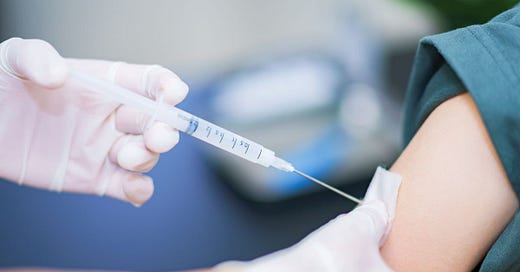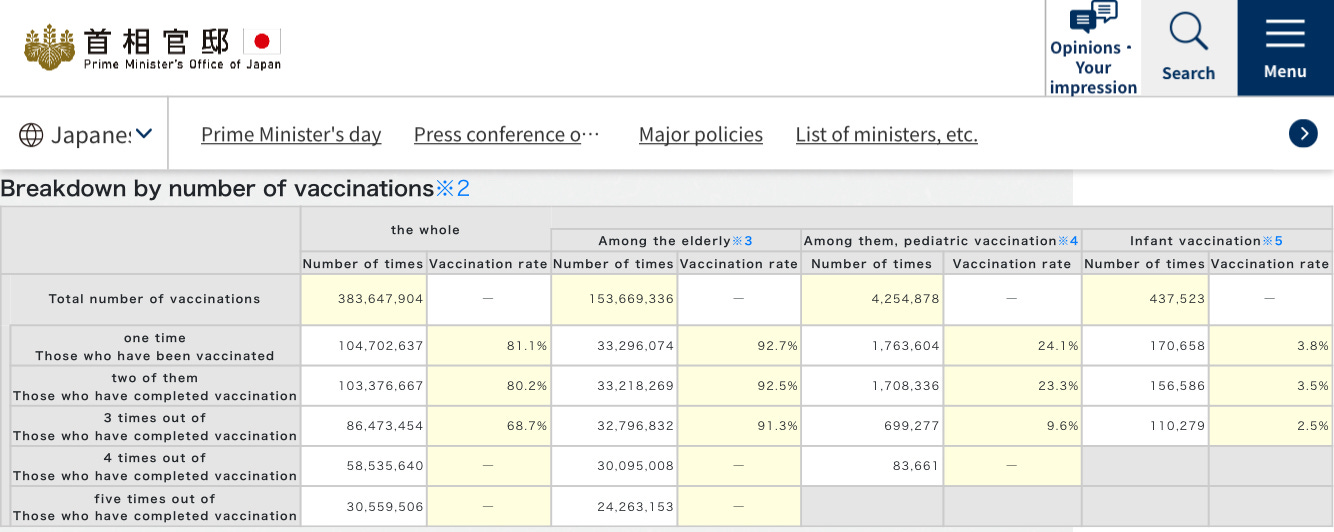Long-time readers of this Substack will know that I was less than impressed by the Ministry of Health, Labour, and Welfare’s (MHLW) decision to approve the Pfizer/BioNTech Covid jabs for kids aged 6 months to 4 years old.
Sadly, the inevitable happened.
Japan's health ministry says a 1-year-old boy with serious kidney illness died after receiving a coronavirus vaccination. It is the first confirmed case in the country in which a small child has died after inoculation...Ministry officials say the child died in February, two days after receiving a third dose of the Pfizer vaccine.
The boy’s pre-existing illness means the conclusion of the ministry’s experts was equally inevitable.
They say the boy was undergoing dialysis treatment and in the terminal stage of kidney failure…Experts on the panel say they cannot establish a causal link between the boy's death and the inoculation, citing a lack of information and other reasons.
One reason a causal link can’t be established is that no autopsy was performed. You can’t find a link if you don’t look for it.
However, the expert panel’s document about the case quotes the boy’s attending physician as follows.
Although the prognosis after birth was not very good, his condition was stable. His sudden death at this timing was a bit unexpected.
The physician’s statement hasn’t been reported in any articles mentioning the boy’s death, which again was inevitable.
Thankfully, over 96% of Japanese parents of kids aged 6 months to 4 years old have declined the infant jabs (source).
As I’ve mentioned previously, post-vaccination adverse events are reported even less in Japan than in the US or UK because only medical institutions and vaccine manufacturers can submit reports to the MHLW. But the reports so far from medical institutions and Pfizer for the infant jabs include:
A 3-year-old boy who suffered a cough, wheezing, swollen lymph nodes, a respiratory disorder, pharyngeal erythema (throat redness), swollen tonsils, an anaphylactic shock, and an asthma attack.
A 3-year-old who suffered gastroenteritis, abdominal pain, diarrhea, nausea/vomiting, and gastrointestinal motility disorder.
Multiple cases of skin disorders such as Henoch-Schoenlein purpura (a type of vasculitis) and hives.
Four cases of convulsions among 2-year olds, one of which was serious.
Of course, long-term effects are unknown.
But because Japan still hasn’t used most of the infant jabs it ordered, the government continues to recommend them for healthy kids under 5 even though most countries in the EU/EEA don’t. Several EU/EEA countries no longer recommend Covid shots for healthy 5-11 year olds either (and Sweden never did), whereas Japan has been offering Omicron boosters to double-jabbed 5-11 year olds since March.
Japan’s behaviour isn’t surprising though. As a US vassal, the Japanese government has acted mainly as a Pfizer-Moderna joint sales office for the last few years. Japan’s stance on childhood Covid jabs can be summed up by misquoting Thucydides: the government sells what it can and the young suffer what they must.








Sorry to hear that...I always thought Japan would be more cautious.
Very very sad... unfortunately you can't protect other people's children